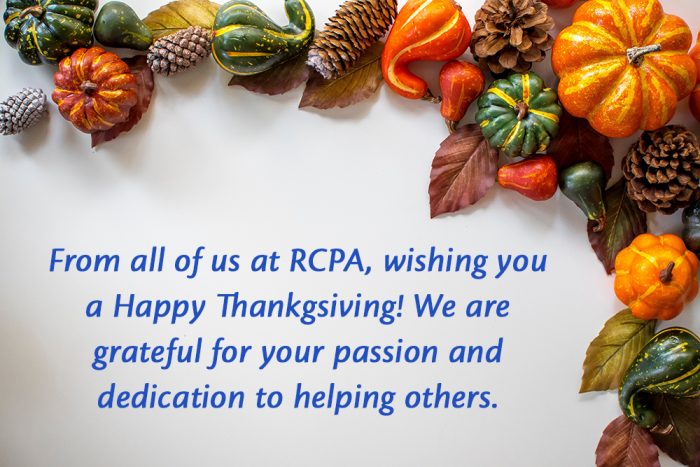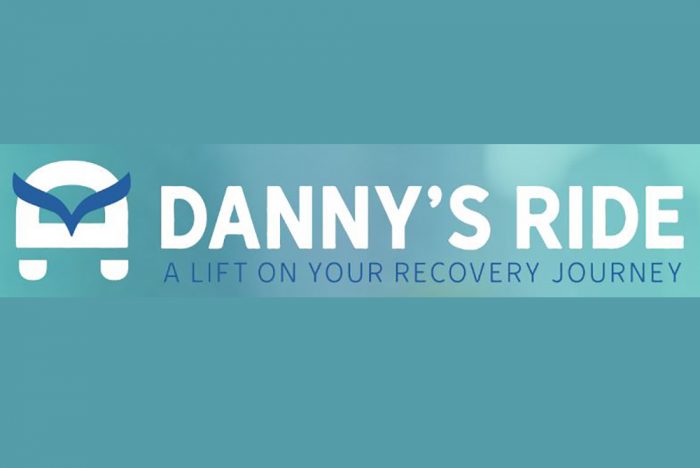SAMHSA Report Begs Questions About Definition of Recovery, Purpose of Addiction Treatment
By Jason Snyder, Director, Substance Use Disorder Treatment Services, BH Division, RCPA
In September 2023, the Substance Abuse and Mental Health Services Administration (SAMHSA) released a report, “Recovery from Substance Use and Mental Health Problems Among Adults in the United States.”
Although the definition and concept of recovery from addiction have been morphing for some time, the self-reported data contained in the report, coupled with SAMHSA’s definition of recovery, lays out starkly that what is considered recovery today is far different from what it has been considered historically. In some ways, it begs the question, then, “What is the purpose of addiction treatment?” What are the implications for addiction treatment providers, who for decades have operated with a mission of helping their patients stop their use of drugs and alcohol?
Using data from the 2021 National Survey on Drug Use and Health (NSDUH), SAMHSA’s report shows that 70 million adults aged 18 or older perceived that they ever had a substance use or mental health problem. For substance use specifically, of the 29 million adults who perceived that they ever had a substance use problem, 72 percent (or 20.9 million) considered themselves to be in recovery or to have recovered from their drug or alcohol use problem (see SAMHSA’s press release).
Of the 72 percent who considered themselves to be in recovery or to have recovered from their drug or alcohol use problem:
- 65 percent reported using alcohol in the past year;
- 68 percent reported using marijuana in the past year;
- 60 percent reported using cocaine in the past year; and
- 61 percent reported using hallucinogens in the past year.
Curiously, it doesn’t appear that respondents were asked whether they used illicit opioids in the past year.
To the traditional addiction treatment provider and many in the recovery community today, recovery and drug and alcohol use can’t co-exist. One possible but unlikely explanation for the SAMHSA-reported data is that all of the respondents who identified as being in recovery but having used drugs or alcohol in the past year is that their recovery began within the last year. This would presume that their definition of recovery includes abstinence. But this is not likely. Consider SAMHSA’s definition of recovery:
“Recovery is a process of change through which individuals improve their health and wellness, live a self-directed life; and strive to reach their full potential.”
No mention of abstinence from drugs and alcohol. What this means is that for millions of people, recovery can and does include moderated use of drugs and alcohol.
In 2004, SAMHSA’s Center for Substance Abuse Treatment said, “Treatment for substance use disorders is designed to help people stop alcohol or drug use and remain sober and drug free. Recovery is a lifelong process.” Twenty years later, it’s a far different message coming from SAMHSA.
As recently as 2019, the Pennsylvania Certification Board defined recovery as highly individualized, requiring abstinence from all mood and mind-altering substances, and may be supported by using medication that is appropriately prescribed and taken.
Talk about evolution and conflict.
Nora Volkow, director of the National Institute on Drug Abuse, said “Healthcare and society must move beyond this dichotomous, moralistic view of drug use and abstinence and the judgmental attitudes and practices that go with it.”
So what does this mean for addiction treatment providers? What, then, is the purpose of addiction treatment? One managed care organization in Pennsylvania recently talked about the purpose of addiction treatment in much the same way as SAMHSA defines recovery, addressing health, home, purpose, and community. This would seem to mean that providers are now expected to address not only addiction but myriad social determinants of health as well. In fact, it is what payers expect providers to do today.
This is a sea change. The addiction treatment system was not built in this way. This is not to say that it is not evolving or cannot evolve along with the definitions of treatment and recovery. But to do so will require much broader systemic change than philosophical and cultural changes within addiction treatment organizations. Regulation and payment structure must also change to reflect the changing expectations and demands placed on providers.
Happy Thanksgiving!

Thoughts of a “Veteran” Mom
(shared by the mother of two sons with intellectual & developmental disabilities/autism, Nechel spoke at the Capitol at one of our recent rallies)
My name is Nechel. My education is in art education. I am no doctor, so do your own research, I can only speak from my experiences, and would like to share them with you.
I have two sons, 22/21; both are on the autism spectrum. My 22-year-old was diagnosed at three years and has high functioning Asperger’s with severe generalized anxiety. Secondary diagnoses are sensory integration disorder, OCD, ADHD. My 21-year-old was diagnosed at 11 months old. He actually has two primary diagnoses – severe autism with aggression and ID. Secondary diagnosis – SI, OCD, language delay, ADHD.
Both sons struggled with childhood sicknesses like most do, including allergies, RSV, croup, ear infections, sinus infections, etc. My youngest son suffered more with these illnesses, which exacerbated the aggressive behaviors! He was taking an average of eight antibiotics per year! He has had six sets of ear tubes, tonsillectomy, sinuses were cauterized, but still needed to be on antibiotics several times a year! His health was impacting behaviors and therapies profoundly. I went on a mission to get my sons healthier.
We have tried many therapies and services over the years, both outpatient and in school. We have utilized Occupational Therapy, Speech Therapy, and assistive technology for language including devices such as “Say it Sam,” and Prologue2go. We have explored/accessed BCBA, BSC, TSS, MT, talk, special school programs, social groups, different foods, and therapies such as play, equine, and music. We have been to specialists, and experimented with homeopathic medicine, and many medication trials!!
I have been using all natural items I have researched in determining each boy’s needs. I capsulize several items for ease of dispensing and avoiding sensory issues. The silver tastes like water so I add to drinks. My sons use immune boosting supplements such as a multivitamin, D3, B-complex, Zinc, Magnesium, Probiotics, and Melatonin. For anxiety, one of my sons uses CBD, Bergamot tablet/roll-on, and Valerian root. My 22-year-old son is now off all prescription medications. My 21-year-old has now gone almost five years with no need for antibiotics, and five fewer prescriptions!
Both use natural remedies such as Mullein EO, sovereign silver liquid/nasal spray PRN for allergies. At the onset of any illness symptoms, we use oregano, elderberry, increase D3, increase Zinc, C, and sovereign silver (liquid, spray).
Due to dietary selectiveness, I utilize a vegetable and fruit-based protein powder with probiotics to bake cookies/brownies. Utilize whatever way works for your child. Amazing flavor, several flavor options, with no chalkiness! I replace flour with this product, undetected!
One experience I would like to share is extraordinary. I learned about Red Pine Needle Oil. Several studies on this refer to use in people with autism, Alzheimer’s, and Dementia, in regards to language, mental clarity, and neurological transmitter repair. In the studies I reviewed, EVERY participant showed some type of improvement! So I had nothing to lose! My oldest son, at age 20, had very limited functional language. He spoke in one word responses, and never wrote anything independently. On the second day using red pine needle oil, he spoke independently and clearly, “Pennsylvania polka calendar!” On the fourth day, he said “I love you” to me for the first time ever, independently and clearly! By the second week, he was writing independently, legibly, and spelled “beach hotel!!!” Of course, his favorite place on Earth. Since then, we hear new language all the time. He writes many requests/words!!!
What if we utilized these methods alongside traditional therapies? What if you had a child to work with that was healthier, clearer thinking, lower anxiety, with behaviors lessened? How much more effective would these traditional therapies be?? With this holistic approach, how much more progress could we attain with our amazing children?? Take it day by day! Start with one product and grow it! Don’t forget, you are all warriors!
–Nechel
Danny’s Ride Offers Solution to Transportation Barrier to Recovery Services
In urban, rural, and suburban communities across the country, transportation to services and programs that support recovery from substance use disorder (SUD) is consistently identified as a significant barrier to access. Danny’s Ride, a Pennsylvania nonprofit that provides rides to recovery services for people living with SUD, is working to remove that barrier.
The Danny’s Ride model is designed so that recovery service providers identify the people who need rides to get to critical services and programs that support their recovery and ensures the rider arrives when and where they’re expected to be.
Danny’s Ride uses Roundtrip, a sophisticated, technology-based transportation company that provides 24 hours a day/seven days a week support for all rides and connects ride requests with rideshare operators, including Uber and Lyft. Staff uses the platform to set up rides (Riders are unable to change the ride details). The average ride cost is about $30, with funding for the rides provided by grants, governmental agencies, and fundraising dollars. A standard arrangement for Danny’s Ride includes single county authorities, which then contract with county providers, including treatment and recovery support providers.
Danny’s Ride started in Lehigh County but has expanded to multiple counties across the state. In addition, it is working on a pilot project with the criminal justice system in multiple counties in Pennsylvania. The organization’s intention is to continue to expand to more counties.
Danny’s Ride was founded in November 2020 by Nancy Knoebel, in honor of her son Danny Teichman. Danny died on November 11, 2016, after taking Kratom to help manage the impact of post-acute withdrawal syndrome resulting from stopping his use of buprenorphine as part of his recovery plan. His decision to stop using medication was driven in large part by stigma directed at medications to treat opioid use disorder and, in turn, at him as a person using the medication. He was one week shy of turning 28. Danny was a “ride giver” both in his recovery community and with friends and family.
Providers interested in more information about working with Danny’s Ride can visit DannysRide.org, email info@dannysride.org, or call 484-265-1411.
Institute for Human Resources & Services, Inc. CFO Job Listing
Congratulations to RCPA Member and Local Nonprofit Vallonia Industries on Celebrating 60 Years!
ODP Right to Know / Freedom of Information (private)
ODP Right to Know Information as of 09-26-22
- RE ODP Fiscal Impact 001 Redacted
- RE DCWDSP Workforce Improvement Redacted
- RE [External] time To Talk Tomorrow Redacted
- RE [External] REODPFinWork Redacted
- RE [External] VFEA Wage Ranges Request For Fo Redacted
- RE [External] Strategic SCO Rate Setting Mtg Redacted
- RE [External] Requested AWC Information Redacted
- RE [External] Request For Meeting Redacted
- RE [External] RE Time To Talk Tomorrow Redacted
- RE [External] RE Revised FY21 22 AAW Fee Range D Redacted
- RE [External] RE Rate Assumptions Redacted
- RE [External] RE Rate Assumptions Redacted (2)
- RE [External] RE PA ODP IDA Service List For R Redacted
- RE [External] RE ODP Financial Workgroup Redacted
- Re [External] RE ODP Financial Workgroup Redacted (2)
- RE [External] RE ODP Financial Workgroup 004 Redacted
- RE [External] RE ODP Financial Workgroup 003 Redacted
- Re [External] RE ODP Financial Workgroup 002 Redacted
- RE [External] RE ODP Financial Workgroup 001 Redacted
- Workgroup Presentation
- Workgroup PPT Redacted
- Residential Ineligible Fee Ranges 11232021
- Residential Ineligible Fee Ranges 11232021
- Residential And Residential Ineligible Fee Ranges 20211104
- Residential And Residential Ineligible Fee Ranges 20211104
- REreadysomeratesstartfilling Redacted
- REreadyratesstartfilling001 Redacted
- REODPRateAssumptionSurveyQPro Redacted
- REODPFinWorkgroup Redacted
- REExStrategicSCORateSetMtg Redacted
- REExReqAWCinfo Redacted
- REExODPFinancialWork Redacted
- REExIDAFY21 22impactanalysis Redacted
- RE Workgroup Presentation Redacted
- RE Residential Vacancy Factor Redacted
- RE Rate Assumptions Survey Redacted
- RE Provider Staffing And Vacancy Survey Redacted
- RE PAR Presentation Redacted
- RE ODP Rates Redacted
- RE ODP Rate Assumption Survey QPro Redacted
- RE ODP Fiscal Impact Redacted
- RE [External] RE ID Rate Refresh Redacted
- RE [External] RE FY21 22 IDA Waivers Fee Rang Redacted
- RE [External] RE FY21 22 IDA Waivers Fee Rang 002 Redacted
- RE [External] RE FY21 22 IDA Waivers Fee Rang 001 Redacted
- RE [External] RE Exceptional Rate Tool Redacted
- RE [External] RE Exceptional Rate Tool 002 Redacted
- RE [External] RE Exceptional Rate Tool 001 Redacted
- RE [External] RE Current BLS Data IDA Redacted
- RE [External] RE April 2022 Rate Comment And Res Redacted
- RE [External] RE April 2022 Rate Comment And Res 001 Redacted
- RE [External] PA ODP IDA Service List For Revie Redacted
- RE [External] ODP IDA Waiver Rate Updates Redacted
- RE [External] ODP Financial Workgroup Redacted
- RE [External] ODP Financial Workgroup
- RE [External] ODP Financial Workgroup Staffing Redacted
- RE [External] ODP Financial Workgroup Staffing 001 Redacted
- RE [External] ODP Financial Workgroup Next Meet Redacted
- RE [External] ODP Financial Workgroup Next Meet Redacted (2)
- RE [External] IDA Residential Fees Redacted
- RE [External] FY21 22 IDA Waivers Residential Redacted
- RE [External] FY21 22 IDA Waivers Non Resident Redacted
- RE [External] FY 2021–2022 IDA Fee Development R Redacted
- RE [External] Concern About Reduced Pay For Enhan Redacted
- RE [External] Checking In Redacted
- RE [External] AWC Admin Fee Development Redacted
- RE [External] AWC Admin Fee Development 003 Redacted
- RE [External] AWC Admin Fee Development 002 Redacted
- RE [External] AWC Admin Fee Development 001 Redacted
- RE [External] Agency With Choice Redacted
- RE [External] Agency With Choice Redacted (2)
- RE [External] 99 Meeting Agenda IDA Rate Refres Redacted
- RE [External] RE ODP Financial Workgroup CPS T Redacted
- RE [External] RE ODP Financial Workgroup CPS T Redacted (2)
- RE [External] RE ODP Financial Workgroup CPS T 003 Redacted
- RE [External] RE ODP Financial Workgroup CPS T 002 Redacted
- RE [External] RE ODP Financial Workgroup CPS T 001 Redacted
- RE [External] RE ODP Financial Workgroup CPS T 001 Redacted (2)
- RE [External] RE IDA Residential Updates Redacted
- RE [External] RE IDA Rate Assumption Adjustment Redacted
- [ODP SCO GROUP] ODP Rate Assumption Survey Due S
- [ODP AE MEMBERSHIP] FINAL REMINDER ODP Rate Assu
- [External] Rate Assumption Survey Redacted
- [External] Workgroup
- [External] VFEA Wage Ranges
- [External] Validation Check For AAW Fiscal Impact
- [External] Updated IDA FY 21 22 Residential Ineli
- [External] Transportation Trip Cost Report Form
- [External] Revised VFEA And AWC Wage Range Exhibi
- [External] Revised FY 2021 2022 Non Residential ID
- [External] Residential Hours Log
- [External] Requested AWC Information
- [External] RE Workgroup Residential Consumers By Redacted
- [External] RE VFEA Wage Ranges Redacted
- [External] RE Transportation Trip Cost Report For Redacted
- [External] RE Times Redacted
- [External] Re Staff Vacancies And Overtime Redacted
- [External] RE Question On Healthcare Assumption D Redacted
- [External] RE PA ODP IDA Service List For Revie Redacted
- [External] RE ODP Financial Workgroup Redacted
- [External] RE Job Classifications Redacted
- [External] RE IDA Wage Range Data Redacted
- [External] RE IDA Residential Updates Redacted
- [External] RE IDA Residential Updates 001
- [External] RE IDA Rate Refresh Request Resident Redacted
- [External] RE IDA Rate Refresh Request Resident 001 Redacted
- [External] RE IDA Rate Assumption Adjustments Redacted
- [External] RE IDA Rate Assumption Adjustments 001 Redacted
- Non Residential FY 21 22 IDA Fee Ranges Standard And Enhanced Communication
- Non Residential FY 21 22 IDA Fee Ranges Standard And Enhanced Communication
- FW VF EA Wage Ranges Redacted
- FW Vendor Fiscal Employer Agent Wage Ranges
- FW [External] RE Rate Assumptions Redacted
- FW [External] ODP Financial Workgroup Staffing Redacted
- FW [External] ODP Financial Workgroup Staffing 002 Redacted
- FW [External] ODP Financial Workgroup Staffing 001 Redacted
- FW [External] IDA FY 21 22 Fiscal Impact Analysis Redacted
- ExODP FinWorkStaffing Redacted
- [External] IDA Residential Services Workgroup S
- [External] IDA FY 21 22 Fiscal Impact Analysis
- [External] HTTS Rate Assumption Letter
- [External] FY21 22 IDA Waivers Residential & In 001
- [External] FY21 22 IDA Waivers Residential & In
- [External] FY21 22 IDA Waivers Non Residential 001
- [External] FY21 22 IDA Waivers Non Residential
- [External] FY 2021–2022 IDA Fee Development Repor
- [External] FY 21 22 IDA PDS And AWC Admin Fee Ran
- [External] FW Rate Assumption Survey
- [External] FW ODP Financial Workgroup Staffing Redacted
- [External] AWC Admin Fee Assumptions
- [External] Additional Information For AWC Response
- [External] 6100.571(b)(7) Geographic Cost Differen
- [External] 99 Meeting Agenda IDA Rate Refresh Re Redacted
- [External] 99 IDA Rate Refresh Meeting Notes
- [External] RE FY21 22 IDA Waivers Fee Range Up
- [External] RE Current BLS Data IDA Redacted
- [External] RE April 2022 Rate Comment And Respons Redacted
- [External] RE April 2022 Rate Comment And Respons 002 Redacted
- [External] RE April 2022 Rate Comment And Respons 001 Redacted
- [External] RE [ODP POLICY AND OPERATIONS] POD FYI Redacted
- [External] Rate Setting Considerations
- [External] PDS Fee Assumptions
- [External] PA Regional Wage Comparison
- [External] PA ODP IDA Service List For Review
- [External] ODP Financial Workgroup Staffing Hour Redacted
- [External] ODP Financial Workgroup Staffing Hour Redacted (2)
- [External] Life Sharing Follow Up
RCPA Hiring Policy Analyst for IDD Division: Please Share
Members, Please Share With Anyone You Know Who May Be Interested/Qualified. Thank you for your consideration!
The Rehabilitation and Community Providers Association (RCPA) is proud to be among the largest and most diverse state health and human services trade associations in the nation. Our mission is to represent providers of health and human services committed to effective, efficient, and high-quality care. To that end, RCPA is seeking a Policy Analyst – Intellectual and Developmental Disabilities (IDD) Division, who will support the IDD Director and RCPA members regarding policy, legislation, and support services locally as well as on a national level.
Duties will include:
- Conducting policy analysis and research; responding to member requests regarding IDD policy-related issues, as appropriate.
- Researching, analyzing, and responding to legislation, regulation, and other policy influencing documents and activities in the IDD field.
- Preparing position papers, written analyses, and other written documents pertinent to the dissemination of policy information in the area of IDD services.
- Studying existing and potential industry trends and laws (on a national, state, and local level) and issues pertinent to IDD providers.
- Responding to member requests regarding IDD-related issues.
- Representing the association at various meetings, including local and national, committees, and work groups.
Qualified applicants for our Policy Analyst – IDD Division opportunity will possess a bachelor’s degree in a relevant field of study, and two to four years related experience and/or training, or equivalent combination of education and experience. Additionally, candidates should possess:
- Excellent oral and written communication skills;
- Demonstrated excellence in establishing and maintaining collaborative partnerships;
- Demonstrated success in developing and implementing strategic plans;
- Ability to work independently and as part of a team;
- Excellent time-management skills and excellent attention to detail; and
- Fluency in the Microsoft Office suite of programs.
This is a full-time position that entails approximately 40 hours of work per week. RCPA is proud to offer a robust benefits package that includes paid medical and dental insurance, life, AD&D and disability insurance, as well as the opportunity to participate in the 401(k) benefit with company match.
Qualified applicants are encouraged to respond to this posting with their resume and salary requirements. RCPA is an equal opportunity employer. We celebrate diversity and are committed to creating an inclusive environment for all employees.
2022 House Resolution 212 Calls for Legislative Task Force Study of Pennsylvania’s ID/A System
In June of 2022, Pa House Resolution 212 was adopted, establishing a legislative task force on intellectual disabilities, developmental disabilities, and autism (ID/A), and directing the Joint State Government Commission to study the impact of this Commonwealth’s current delivery of services to individuals with ID/A. The task force is to report its findings and recommendations to the House of Representatives in December of 2023.
The task force is charged with examining the efficiency, uniformity, and best practices of the administration of services through the county system, Quality of Life outcomes, including waiver services, waiting lists, and transitional protocols; and of moving into and out of one waiver or program to another, transitioning out of high school, and how current Federal and State laws and regulations impact and limit supports and services. There are several areas specified in the House Resolution that the task force members are to consider, including:
- Collaborations between the Department of Human Services, managed care organizations, and providers, including reimbursement rate settings, direct support professionals, other funding sources, and how providers collaborate to serve individuals with ID/A.
- Opportunities for integrated job coaching, community participation supports, including for individuals who chose not to go into the community because of underlying issues, and additional programs offered through the Office of Vocational Rehabilitation, or the Employment First Commission.
- Current treatment needs, including network capacity to treat and care for high acuity individuals, individuals with complex medical needs in addition to intellectual disabilities, and individuals who need special care and assistance with intensive behavioral health issues. The study examines all available living settings, including intermediate care facilities, community homes, state centers, services in family homes, Lifesharing, independent living with assistance, farmhouse settings, campus settings, and any other innovative residential services.
- Barriers and obstacles in transportation for individuals living in the home or receiving community-based services for jobs, medical appointments, and peer-to-peer groups.
- Workforce issues with direct support professionals, supports coordinators, behavioral and mental health specialists, or health care practitioners who assist with the provision of services.
- Providers who have ceased operations since the beginning of the COVID-19 pandemic.
- Input from representatives and advocates from all aspects of the sector and continuum of care to assist the Joint State Government Commission with its findings and recommendations in the report.
The task force held its introductory meeting in October to begin the process. Dr. Richard Edley, RCPA President and CEO, has been appointed to serve on the task force. Additionally, RCPA was successful in advocating for members and partners to be assigned; Marian Baldini, President/CEO of KenCrest; Christopher Betts, MA, Executive Director of Devereux Advanced Behavioral Health; Lisa Liston, Coordinator of Special Services and Family Support at Clelian Heights School for Exceptional Children; and Amy Lutz, PhD.
Representative James Struzzi, II, and Representative Eric Nelson, along with Representative Benham and Representative Joseph Hohenstein have also been appointed to serve on the task force.
Additional appointed members include Oscar Drummond, Representative, Pennsylvania Department of Human Services Office of Developmental Programs; Mayme Carter, MSW Director, Bradford County Human Services; Jane Gonzalez, Guardian, Advocate, Mother; Anne M. Couldridge, Executive Director, The Arc of Cumberland & Perry Counties (CPARC); Ryan E. Hyde, MEd, CRC Executive Director – Acting Pennsylvania Department of Labor and Industry Office of Vocational Rehabilitation; G. N. Janes, Chief Executive Officer, Valley Community Services; Daisy V. Shirk, DO, DFAPA Adolescent Psychiatrist Reading Hospital, Honorable Ryan M. Tira Pennsylvania Supreme Court Autism and the Courts Task Force Member; Melissa Watson, PhD, LPC, BCBA, Senior Vice President PAHrtners Deaf Services; Maria Martin, Representative, Pennsylvania Developmental Disabilities Council; Ned Whitehead, Vision For Equality; Edward Yongo, CEO Pathways of Southwest; Pamela Zotynia, Service Director, Participant Directed Services, Values Into Action.
The task force is staffed by Executive Director Glenn J. Pasewicz, Yvonne Llewellyn Hursh, Esquire, Staff Attorney Stephen J. Kramer, Esquire, and Executive Secretary/Office Manager Wendy L. Baker.










